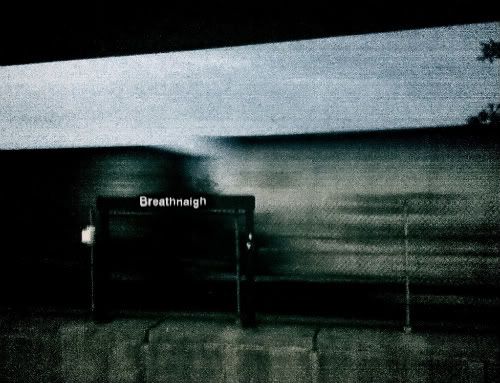Film
Tarik Dahir, Jeff Gaul
USA, 2004, 87 minutes
Seven Psycho Samurai
Rating: *** out of four
It must be difficult to make a documentary - especially difficult if it's chronicling something current. This type of doc would seem easier - your informants are still kicking, adding a level of vitality you can't get from narrating a document slideshow.
But there are problems: people exaggerate when they reminisce, and memory is selective. A good histroy teacher line is: "History is a perception of the past." And no one ever told Ken Burns and Shelby Foote "Your take on Antietam was way off, man. I was there!"
So I give Dahir and Gaul a lot of credit for tackling this subject, and pulling it off pretty well. I can't personally speak to the subject - DC's 9:30 Club in its original incarnation, from 1980 to the late 90s - as I was busy being a child. But the Dirty Thirty, as the original room is called by some of the interviewees here, spent its first 20 years or so becoming the definitive rock club - the envy of many cities - and the center of DC's legendary "scene". A rockist (and I don't use that as a pejorative) could go to tears over the concert bills alone. REM and Bauhaus sharing a stage? Despite the fanboy dream concerts, 930 F Street focuses less on the club's acts and more on its effect.
The real strength (or weakness) of any documentary lies in its sources. There is no shortage of colorful personalities associated with the club, from musicians (Bad Brains HR, Minor Threat/Fugazi's Ian Mackaye, etc.) to club workers (Freek stands out) to its current management (Seth Hurwitz and friends are some powerful and reliable tastemakers). These people all have their own takes on the club's cultural worth, and where the film fails is what to do with these passionate, informed and sometimes contradictory impressions. Mackaye is careful not to tie to the 9:30 the "movement" so closely associated with his personality, but it's generally implied that the club and the youth/straightedge groundswell are integrally related. Not everyone agrees with that. But where to go from there?
930 F Street had a tough job. The filmmakers really remove themselves from the film (standard practice), but this film would never have seen the darkness of a theater if they didn't care a lot about the 9:30 club. The film could probably have benefited from some more top-down direction, so some conclusions could be reached or some definitive questions asked. As is, it's a nicely organized scrapbook that tries, but won't satisfy everyone involved. That's not the point, though, right?
Aside from content, the filmmakers try and employ some tricks to set the film apart from all the cookie-cutter documentaries out there. Some touches fit well; for instance, placing subtitles in an old concert calendar. Some distract, like the initial, staticky fade-ins on each informant. And the use of a "punk polka" as the outro nearly drove me out of my seat, though I wanted to stick around.
An enjoyable and informative, if incomplete, history - more worthwhile for the uninitiated like me than for old heads looking to have their memories backed up.
Welcome to SIGNALS, a collection of thoughts on style, life and links from
around the internet. It’s almost time for everyone to shut things down for
one d...

1 comment:
Enjoyed the review, regards
Post a Comment